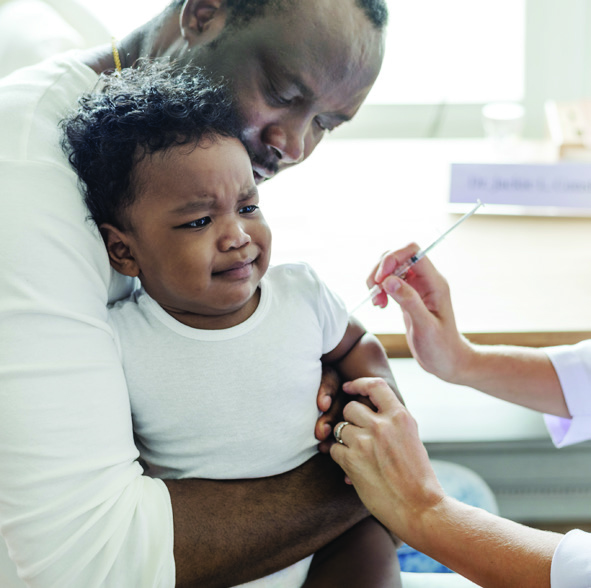Sunday Times Healthy Times
Immune Protection
As the SARS-CoV-2 virus kills hundreds of thousands worldwide, scientists are working against the clock to produce a vaccine that will stop the deadly virus. While we eagerly await this breakthrough, perhaps it’s a good time to look at how vaccines save lives.
What are vaccines and how do they work?
“Vaccines prevent illnesses and deaths from infectious diseases against which they are developed,” says Prof Jeffrey Mphahlele, vice-president of the South African Medical Research Council and scientific advisor at the South African Vaccination and Immunisation Centre. “When an infection enters the body, the body naturally mounts a specific immune response to fight the invading pathogen. A vaccine triggers a specific immune response through an active material generally referred to as ‘antigen’. Antigens are administered as vaccines to induce long-term protection and prevent diseases caused by the specific pathogens against which they have been developed. When we later encounter the same antigen in the form of a natural infection, the immune response rapidly and effectively neutralises the infection before it causes any damage.”
There are three broad types of vaccines:
• Inactivated: whooping cough (pertussis)
• Live-attenuated: measles, mumps, rubella (MMR vaccine), yellow fever, oral polio, rotavirus
• Fractional or sub unit: (genetically engineered hepatitis B, human papilloma virus)
Scientists decide the vaccine development pathway by understanding the biology of the pathogen. “The vaccine should be safe and not revert to virulence if it is a live-attenuated vaccine,” says Mphahlele. “In the case of HIV, only genetically engineered vaccines would be generally acceptable.”
What about the flu vaccine?
Many viruses attack our respiratory systems, but the influenza (flu) virus, which usually affects South Africa between May and August, can cause severe illness or death.
“While most people will only experience mild symptoms – fever, cough, headache, muscle and joint pain, sore throat, congestion – influenza can also cause serious respiratory diseases like bronchitis or pneumonia that could lead to hospitalisation or even death,” says Prof Marietjie Venter of the University of Pretoria’s Department of Medical Virology. “In fact, between 100 000 and 600 000 people die from influenza each year worldwide, and up to 11 000 in South Africa alone. The flu vaccine won’t protect people from COVID-19, but it will reduce other influenza-related serious illnesses that could further strain our healthcare system or cause more severe disease due to co-infection.”
While COVID-19 tends to affect older people more seriously, influenza can be fatal for both young and old. “The WHO recommends that the following groups should have the annual flu vaccination: pregnant women; children between six months and five years of age; people over 65; people with chronic medical conditions; and healthcare workers,” says Venter. “But everyone will benefit from the vaccination.”
“Globally, millions of babies have not received their scheduled vaccinations due to disruptions caused by COVID-19 and lockdowns.” – Prof Jeffrey Mphahlele
Effect of COVID-19 on EPI-SA
Lockdown has had an unintended negative consequence on the provision of essential health services like vaccination programmes. “Globally, millions of babies have not received their scheduled vaccinations due to disruptions caused by COVID-19 and lockdowns,” says Mphahlele. “These gaps in the immunisation services are cause for great concern.”
National vaccination programmes
Every country has a national vaccination programme. South Africa follows the Expanded Programme on Immunisation in South Africa (EPI-SA), which offers vaccines to children from birth throughout childhood, depending on the risk of infection at particular ages, among other factors.
“For instance, children can be exposed to polio or TB soon after birth, so vaccination against these diseases at birth or soon thereafter is crucial,” says Mphahlele. “The other vaccines are administered from six weeks of age.”
The other consideration for giving vaccines is circulating maternal antibodies in the baby. “These antibodies provide pre-existing passive immunity in the baby and may negatively impact the potency of live-attenuated vaccines,” says Mphahlele. “A good example is the measles vaccine, which is delayed until about nine months unless the child is at high risk of contracting the disease before then.”






 Sign-up and receive the Business Media MAGS newsletter OR SA Mining newsletter straight to your inbox.
Sign-up and receive the Business Media MAGS newsletter OR SA Mining newsletter straight to your inbox.